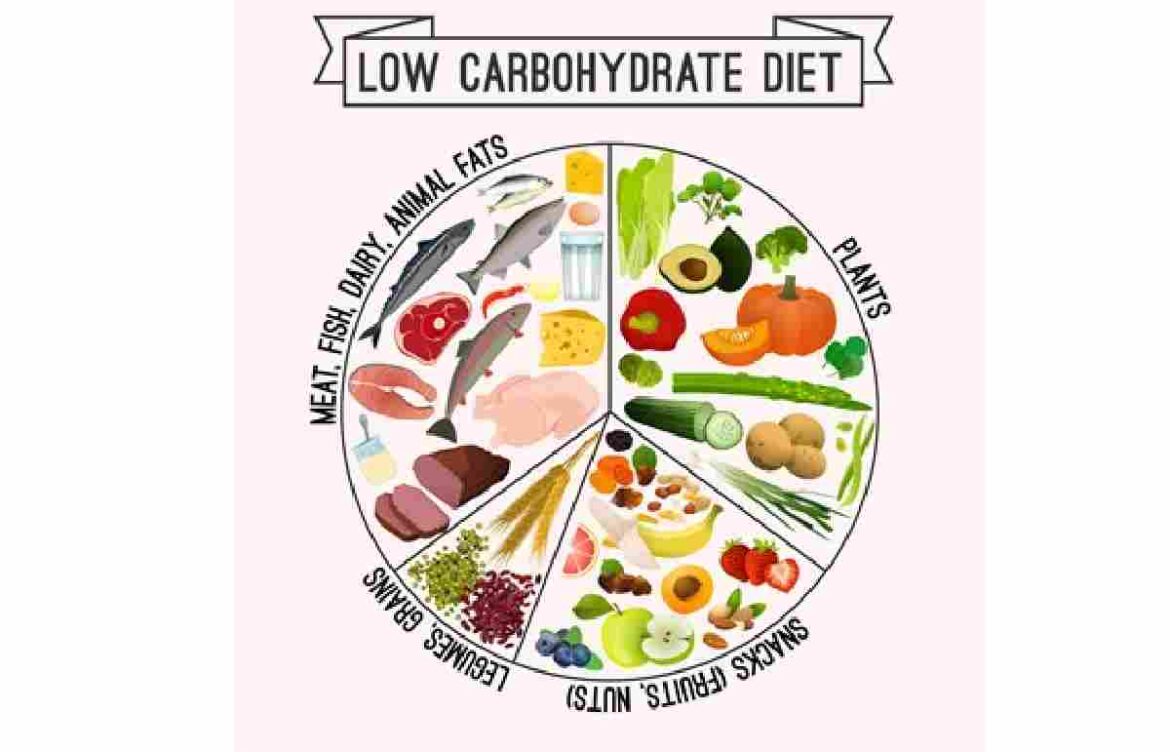
Low-Carb-Diet
A low-carb diet limits carbohydrates, frequently called carbs, similar to those in grains, stiff vegetables, and fruits—a low-carb diet focuses on foods high in protein and fat. Numerous types of low-carb diets live. Every diet has variable limits on the type and importance of carbs.
What Food is Included in a Low-Carb Diet?
Here are some of the foods to eat on a low-carb diet.
Fish: salmon, trout, haddock, tuna
Meat: beef, pork, angel, funk
Eggs: egg whites, whole eggs, egg yolks
Non-starchy vegetables: tomatoes, cauliflower, spinach, broccoli, carrots, asparagus,
Low-carb fruits: blueberries, strawberries, oranges, snorts, blackberries
Seeds and Nuts: almonds, chia seeds, walnuts, sunflower seeds, pistachios
High-fat dairy: rubbish, adulation, heavy cream, Greek yogurt
Fats and oils: lard, avocado, avocados, olive oil, coconut oil
If you want to follow a very low-carb or keto diet, you might also want to add small quantities of these foods:
- Starchy vegetables: potatoes, sweet potatoes, yams, peas, sludge.
- Higher-carb fruits: bananas, pineapples, mango, others.
- Whole grains: brown rice, oats, quinoa.
- Legumes: lentils, black sap, pinto sap, chickpeas.
- Highly-carb dairy: milk and full-fat yogurt.
Dark chocolate is highly anti-oxidant and may improve your health if you eat it in control. In calculation, you can drink dry wines with no added sugar or carbs. Just be alert that both dark chocolate and alcohol may hamper weight operation if you eat or drink too much. Carbs and calories can be high in beverages, so consider choosing drinks free of added sugar whenever possible, similar to coffee, tea, or sugar-free foamy water.
Why is it Essential to Follow a Low-Carb Diet?
You might have to follow a low-carb diet because:
- Diet that limits some carbs to support your weight loss?
- Change your overall eating habits?
- Enjoy the type and quantum of food used in low-carb diets.
Concern with your health care provider before you can start any weight-loss diet, especially if you have any health conditions similar to diabetes or heart complaints.
Diet Details
A low-carb diet limits the quantum of carbohydrates you eat. Carbs are grouped as:
- Simple natural, similar to lactose in milk and fructose in fruit.
- Simple meliorated, similar to table sugar.
- Complex natural, similar to whole grains or sap.
- Complex meliorated, similar to white flour.
What are the natural sources of carbohydrates?
- Grains.
- Fruits.
- Vegetables.
- Milk.
- Nuts.
- Seeds.
- Legumes, such as beans, lentils, and peas.
In general, you digest compound carbs more slowly. Complex carbs also have a lower effect on blood sugar than refined carbs do. They also offer fiber.
Risks:
Simple carb limits can cause your body to break down fat into ketones for energy. It may cause side effects such as fatigue, bad breath, headache, and weakness.
What kind of likely long-term health risks a low-carb diet may pose? Limiting carbs in the long term may cause you to have too few vitamins or minerals and digestive issues.
Some health experts suppose that eating large quantities of fat and protein from beast sources increases your threat of heart complaints or certain cancers.
Still, consider the fats and proteins you choose If you follow a low-carb diet. Limit foods with impregnated and trans fats, similar to meat and high-fat dairy products. These foods may increase the threat of heart complaints.
Conclusion
Low- Low-carbohydrate (low-carb) diets are a strategy for weight loss. Moment, there continues to be an interest in low-carb approaches. While all low-carb approaches reduce the overall input of carbohydrates, there’s no explicit agreement on what defines a low-carb diet.
